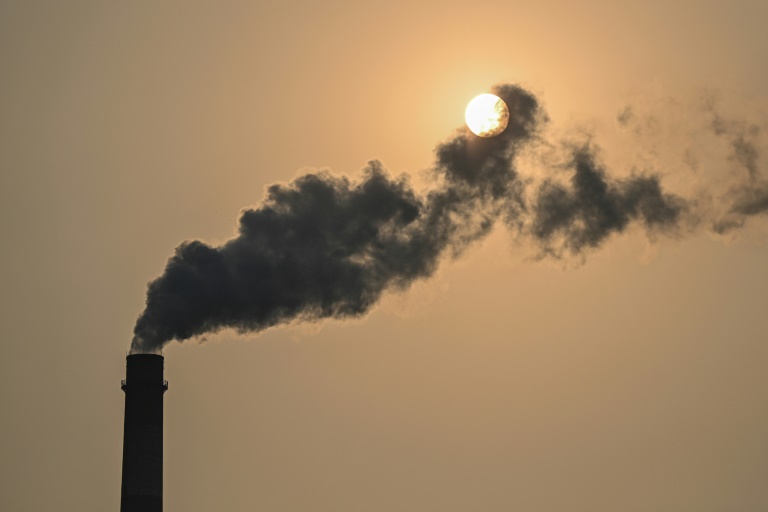ByKaren Graham
Published October 23, 2021

Smokestacks belch noxious fumes into the air from a massive coal-fired power plant on the Indonesian coast, a stark illustration of Asia's addiction to the fossil fuel which is threatening climate targets - Copyright AFP Michele Spatari
With COP26 taking place in Glasgow in a couple of weeks, Australia is already being considered the “bad guy” by many world leaders because instead of phasing out coal – the worst fossil fuel – Australia is committed to digging more.
According to the BBC, Australia “is one of the dirtiest countries per head of population and a massive global supplier of fossil fuels.” Only Indonesia sells more coal than Australia globally.
To date, Australia has made no pledge to reduce carbon emissions to net-zero by 2050, unlike many of its Western counterparts. Australia’s 2030 emissions target is a paltry 26 percent cut based on 2005 levels, less than half of US and UK benchmarks.
Prime Minister Scott Morrison’s government is under huge pressure to do more, but the coal mining industry has helped to drive Australia’seconomy for years and years. Coal continues to be the country’s second-largest export, behind iron ore.
And while the government credits coal for much of the country’s wealth, analysts argue this may be overblown. Coal exports totaled A$55 billion (£29bn; $40bn) last year, but most of this wealth was kept by mining companies. Less than a tenth went to Australia directly – that’s about 1 percent of national revenue.
And the total workforce in Australia’s coal sector is around 40,000 – about half the size of McDonald’s workforce in Australia. Australian Resources Minister Keith Pitt is very bullish on the government’s commitment to coal workers.
“The reality is that global demand for Australian coal is increasing and forecast to continue rising into the next decade at least,” Pitt said in a statement in September, per Phys.org, promising coal industry workers they had a “long-term commitment” from the government
.

Coral not coal protest at India Finance Minister Arun Jaitley Visit to Australia in 2016. Source – Takver from Australia, CC SA 2.0.
The demise of coal is a stark reality
Coal production and usage has already plunged in North America and Europe. China, as well as many banks, have committed to stop financing overseas coal projects. Australia, in the meantime, approved its third coal mine extension in a month and bolstered partnerships for long-term coal exports, according to Oilprice.com.
In September, Environment Minister Sussan Ley approved extensions for the Whitehaven Coal and Wollonggong Coal mines. The latest extension approval was for the Glencore Mangoola thermal coal mine in New South Wales.
“Australia knows the party is over. But the police haven’t been called yet. So they’ll continue to party on until they’re stopped,” says Richie Merzian, a climate expert at the Australia Institute.
Environmentalists argue inaction on climate change could cost Australia’s economy billions of dollars as the country suffers more intense bushfires, storms, and floods.
The demise of coal is a stark reality
Coal production and usage has already plunged in North America and Europe. China, as well as many banks, have committed to stop financing overseas coal projects. Australia, in the meantime, approved its third coal mine extension in a month and bolstered partnerships for long-term coal exports, according to Oilprice.com.
In September, Environment Minister Sussan Ley approved extensions for the Whitehaven Coal and Wollonggong Coal mines. The latest extension approval was for the Glencore Mangoola thermal coal mine in New South Wales.
“Australia knows the party is over. But the police haven’t been called yet. So they’ll continue to party on until they’re stopped,” says Richie Merzian, a climate expert at the Australia Institute.
Environmentalists argue inaction on climate change could cost Australia’s economy billions of dollars as the country suffers more intense bushfires, storms, and floods.
No comments:
Post a Comment